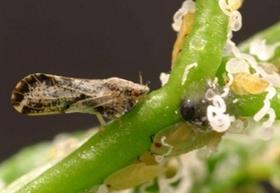
Argentina is intensifying its surveillance programme in the fight against HLB after national plant health authority Senasa reported that seven positive cases of HLB were detected in samples of plant material taken in the departments of Iguazú and Eldorado, in the province of Misiones.
Three of the samples were found on commercial farms and four in private gardens in urban areas.
Industry representatives stressed that region where the positive samples were found is several hundred away from Northwest Argentina, which last month secured a pledge from the US that it would reopen its market to Argentine lemons “within weeks”.
Since its first detection in Brazil in 2004, HLB has spread throughout South America and is now present in most of the main citrus producing countries.
In May the Andean Community countries (Bolivia, Ecuador, Colombia and Peru) launched a plan of action to combat the spread of HLB, or citrus greening.
The protocol sets out a series of collective measures that the countries have agreed to instigate, including phytosanitary monitoring, fumigation in sites where the vector insect is found and the exchange of scientific information about the disease.


